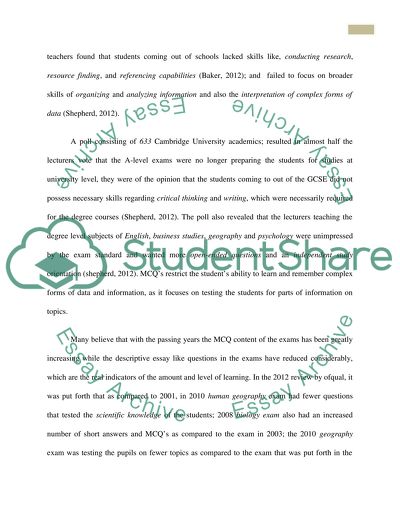Cite this document
(“Should GCSE formate be changed over the next few years Essay”, n.d.)
Retrieved from https://studentshare.org/education/1403726-should-gcse-formate-be-changed-over-the-next-few
Retrieved from https://studentshare.org/education/1403726-should-gcse-formate-be-changed-over-the-next-few
(Should GCSE Formate Be Changed over the Next Few Years Essay)
https://studentshare.org/education/1403726-should-gcse-formate-be-changed-over-the-next-few.
https://studentshare.org/education/1403726-should-gcse-formate-be-changed-over-the-next-few.
“Should GCSE Formate Be Changed over the Next Few Years Essay”, n.d. https://studentshare.org/education/1403726-should-gcse-formate-be-changed-over-the-next-few.


